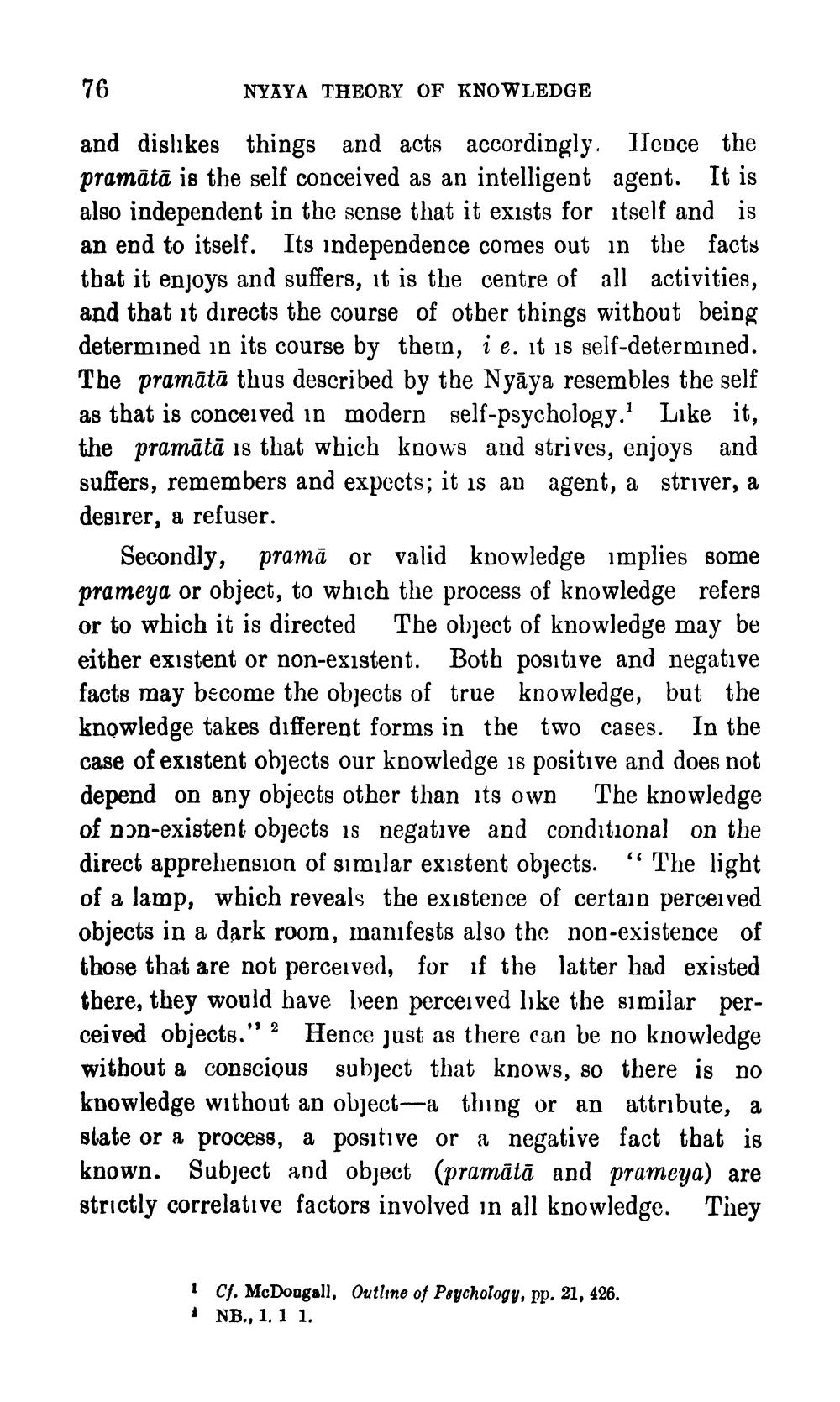________________
76
NYAYA THEORY OF KNOWLEDGE
and dislikes things and acts accordingly. IIence the pramātā is the self conceived as an intelligent agent. It is also independent in the sense that it exists for itself and is an end to itself. Its independence comes out in the facts that it enjoys and suffers, it is the centre of all activities, and that it directs the course of other things without being determined in its course by them, ie, it is self-determined. The pramātā thus described by the Nyāya resembles the self as that is conceived in modern self-psychology. Like it, the pramātā is that which knows and strives, enjoys and suffers, remembers and expects; it is an agent, a striver, a desirer, a refuser.
Secondly, pramā or valid knowledge implies some prameya or object, to which the process of knowledge refers or to which it is directed The object of knowledge may be either existent or non-existent. Both positive and negative facts may become the objects of true knowledge, but the knowledge takes different forms in the two cases. In the case of existent objects our knowledge is positive and does not depend on any objects other than its own The knowledge of non-existent objects is negative and conditional on the direct apprehension of similar existent objects. “The light of a lamp, which reveals the existence of certain perceived objects in a dark room, manifests also the non-existence of those that are not perceived, for if the latter had existed there, they would have been perceived like the similar perceived objects." 2 Hence just as there can be no knowledge without a conscious subject that knows, so there is no knowledge without an object-a thing or an attribute, a state or a process, a positive or a negative fact that is known. Subject and object (pramātā and prameya) are strictly correlative factors involved in all knowledge. They
1 Cf. McDougall, Outline of Psychology, pp. 21, 426. 1 NB., 1.1 1.




